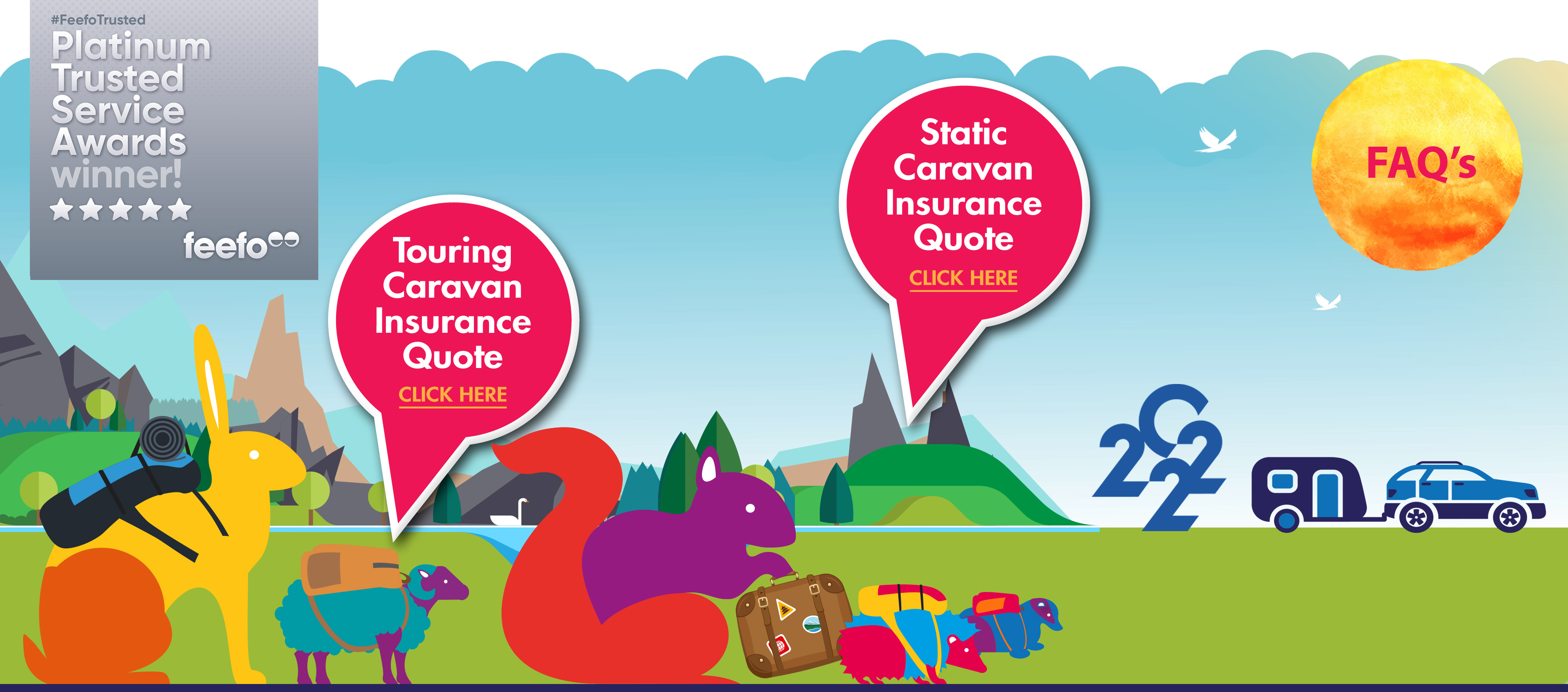Why planning matters more than people expect when touring with a caravan
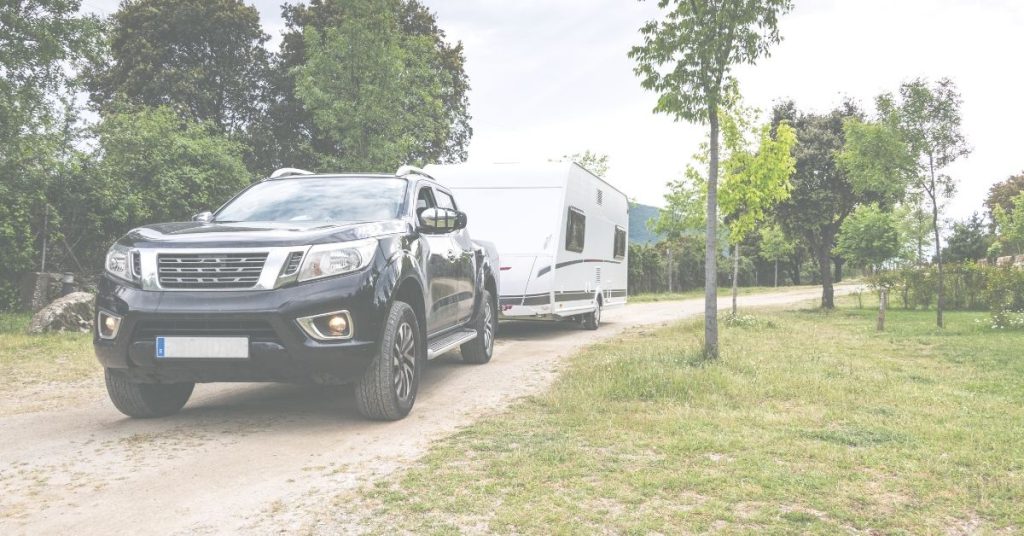
Caravanning is often associated with freedom – the ability to change plans, take the scenic route or stay longer somewhere that feels right. For many people, the word “planning” sounds like the opposite of that. Too rigid. Too organised. Too close to turning a break into a schedule.
In reality, planning is what makes that freedom possible.
The most enjoyable caravan trips are rarely the least planned. They are the ones where enough thought has gone in beforehand to remove friction, reduce uncertainty and allow decisions to be made calmly once the journey begins.
Planning isn’t about control – it’s about flow
Good planning in caravan touring isn’t about locking yourself into a fixed itinerary. It’s about understanding the shape of your trip before you set off. Knowing roughly how far you want to travel, what kind of landscape you’re heading into and how much energy you want to spend each day.
That awareness makes a real difference. Touring through wide, open regions such as the Scottish Highlands feels very different from travelling through tighter, more populated areas. Distances, road types and stopping points all affect how a day unfolds. Planning helps you work with a destination rather than against it.
Experience changes how people plan
Ask long-term caravan owners how they plan today, and many will tell you they plan less than they used to – but more effectively. Early trips are often over planned, driven by nerves or fear of getting things wrong. Over time, that shifts.
Experienced caravan travellers know what matters. They plan around pace, daylight, weather and how they want the trip to feel, rather than trying to account for every detail. That confidence comes from understanding their own preferences as much as the destination.
Planning supports flexibility, not rigidity
One of the great myths about planning is that it removes spontaneity. In practice, the opposite is often true. When you’ve done a bit of thinking in advance, changing plans becomes easier, not harder.
This is especially true in places where weather plays a big role. Touring areas like the Lake District or Pembrokeshire where the weather can be notoriously unpredictable can look very different from one day to the next.
Knowing your alternatives – shorter drives, nearby locations or quieter routes – makes adapting feel natural rather than stressful.
Time and energy matter more than mileage
Planning also changes how people think about distance. Caravan touring isn’t about covering ground quickly; it’s about enjoying the journey without arriving exhausted.
Shorter travel days, realistic arrival times and room to pause along the way often lead to better experiences. Regions such as the Norfolk Broads lend themselves particularly well to this slower rhythm, where the landscape encourages unhurried movement and time outdoors.
Planning cushions the unexpected
Unexpected situations are part of any trip. Roads close. Weather shifts. Plans change. What tends to define the experience is not whether something unexpected happens, but how prepared you are when it does.
When a trip is loosely planned, changes feel manageable rather than disruptive. You’re less likely to feel boxed in by decisions made earlier and more able to respond calmly to what’s happening in front of you.
A practical planning checklist for caravan touring
While the following checklist is not exhaustive, here are some ideas of what to include when planning your next trip …
For wet weather and downtime
- board games, cards or puzzles for relaxed evenings;
- books, magazines or downloaded films for offline use;
- activities that don’t rely on good weather or outdoor space;
For navigation and detours
- paper road maps for wider route awareness;
- notes on alternative routes or nearby areas worth exploring;
- offline navigation or saved locations where signal may be limited;
For food and drink flexibility
- simple, adaptable meal options;
- hot drinks and comfort favourites;
- easy snacks for travel days or unplanned stops;
For comfort and routine
- extra layers, blankets or throws;
- familiar items that make the caravan feel settled;
- lighting, music or small touches that create a relaxed atmosphere;
For shared time
- games or activities suitable for everyone travelling;
- items that encourage conversation and downtime;
- space to slow the pace and enjoy being together;
For peace of mind
- essentials that reduce reliance on local facilities;
- a small buffer of supplies for plan changes;
- the basics that allow you to adapt calmly if circumstances shift.
Confidence is the real benefit
Perhaps the most valuable outcome of planning is confidence. Not the loud, performative kind, but the quiet assurance that comes from knowing you’ve thought things through.
That confidence allows you to relax once you’re on the road. Decisions feel easier. Detours feel less risky. The journey feels lighter.
In many ways, planning becomes part of the pleasure. Reading about places, imagining routes and shaping the kind of trip you want to take all build anticipation. Far from limiting freedom, thoughtful planning clears the way for the kind of flexible, rewarding travel that caravanning does best.
Further reading: Caravanning Checklist,
Guide to what to do on rainy days and Winter caravanning: What to pack and where to go.
Winterising your caravan: Storage, security, and insurance essentials

The winter has really set in by now, and perhaps only the hardiest are likely to venture out and about with their caravan in tow. If you are like most of us, though, you’ll be looking for ways of keeping your caravan safely tucked up for the winter (as well as typically meeting the terms and conditions of your tourer insurance cover which may require you to fulfil certain obligations in order to minimise any risk).
Here are some of the essentials …
Storage
Probably the single most important consideration will be exactly where you choose to store your caravan – if you choose a Caravan Storage Site Owners’ Association (CaSSOA) approved storage facility, not only may you have peace of mind that your caravan is securely stored, but you may also attract discounts on your insurance premiums (up to 20% with Cover4Caravans).
Further reading:
Guide to Caravan Storage and Security
Caravan Storage and Insurance Video;
Security
- once you’ve found a safe location where you can store your caravan, you are still responsible for maintaining all reasonable security precautions;
- as our blog about Caravan security makes clear, deterring theft boils down to essentially three main components – immobilisers, alarms, and locks;
Weathering the winter storms
- even though you can rest easy that your caravan is over-wintering in the safety of a CaSSOA-approved site, it may still remain outside and exposed to the elements;
- so you do need to ensure your caravan is weather-proof – our blog Storm proofing your caravan; protecting against wind and rain explains this in more detail;
- the very way in which any caravan is built makes it more than usually vulnerable to wind, rain, and stormy weather – naturally, it is no match for bricks and water, but there are still ways in which you can help your trailer weather even the worst storms;
- it’s important, for example, to retract or completely remove any awning;
- make sure your trailer remains wind and watertight by carefully checking the seals around all the windows and doors – taking care not to block any of the ventilation openings, guarding against damage from frost or ice, and checking whether your insurance cover requires the water system to be drained down.
Your caravan insurance
Before the final onset of winter, it might also be helpful to check your caravan insurance policy for any exclusions or conditions you need to meet to show that it has been properly maintained in readiness for the harsher weather ahead. If you are unsure as to what your obligations are under the terms of the policy, speak to your insurance provider.
These are some of the basic steps you might want to take to winterise your caravan so that it remains ready to hit the road as soon as the spring weather allows.
From choosing safe storage to preparing for the worst that winter’s weather might bring to reviewing all that your caravan insurance has to offer, this is the time of year to show that extra care and attention that will see your caravan through until the coming new season.
What are some the latest UK camping and caravanning news stories?

It’s a New Year, and a new caravanning season is just around the corner – though it might not feel like it during the recent snowstorms!
But we’ll help you stay on top of the caravanning news by taking a peek behind some of the latest UK caravan news headlines.
Huddersfield location crowned Campsite of the Year
The coveted Campsite of the Year award has gone to a site at Thongsbridge, Holmfirth, near Huddersfield, announced Yorkshire Live on the 16th of December.
Awarding the title to Holme Valley Caravan & Camping Park, Out and About Live praised the site for its eco-conscious operation and for the high quality of its facilities. The organisers went still further by describing Holme Valley as everything one would expect of an award-winning destination.
Holme Valley Caravan & Camping Park occupies an especially peaceful location on what was once the site of a working woollen mill. It became a caravan park in 1986 and has remained a family-run affair ever since. From the outset, the family has aimed for a green and sustainable environment – and that has attracted many wildlife supporters.
Plans to create a new caravan park in South Wales
The 4th of January edition of Barry and District News reported that the Vale of Glamorgan planning authorities are considering an application to turn a vacant site in Wenvoe, South Wales, into a caravan park. Public feedback continues while the council considers the planning application.
The plans focus on the redevelopment of the former Tunnelside Yard, at Alps Quarry Road, in Wenvoe, as a site for touring caravans and motorhomes (no static caravans are included in the application).
Repurposing land for tourism-related activities has not met with universal approval in other planning applications, but the one for Tunnelside Yard rests on credentials that include low environmental impact, eco-friendly amenities, and utility hookups.
The applicants promise extensive landscaping of the park, numerous onsite connections for water, electricity, and waste, environmentally sustainable operations, and affordable holiday choices during seasonal operations.
Festive UK travel delivers £3.3bn domestic tourism boost
The Christmas and New Year festivities throughout the UK this year generated a £3.3 billion boost to the economy, according to a recent news story.
An estimated 11.6 million Britons took a break away from home for at least one night during the recent holidays. This is a notable increase from last year. Over the Christmas period of 2024, for instance, only 9 million Britons chose an overnight stay in the UK.
Most revellers opted for multiple short breaks – around half enjoyed two or more separate breaks away, visiting family or engaging in the many festive activities, and outdoor pursuits like walking and cycling.
Last-minute decisions seem to have been made on account of the changing weather, together with discounts that made certain deals even more affordable. According to analysts, it all added up to the recent holiday period becoming one of the busiest times for travel during 2025.
With 2025 ending on such a positive note, says Visit England who released the figures, a welcome boost has been given to tourism destinations throughout the UK for 2026.
Lake District authorities look at new ways to manage anti-social behaviour and illegal camping
According to local newspaper Cumbria Crack on the 6th of January, councils throughout the Lake District will be taking a tougher stance on anti-social behaviour in the tourism hotspot.
Windermere west shore, Coniston east shore, and Blea Tarn – all sites owned by the National Trust – along with Askam and Dalton, will be subject to public space protection orders.
That will allow police in these areas to issue fixed penalty notices of up to £100 for anti-social behaviour such as irresponsible use of alcohol, dog fouling, and unsafe barbeques and fires.
Failure to pay that initial penalty can lead to a summary conviction before the courts and a fine of up to £1,000.
Site Review – Stretton Lakes
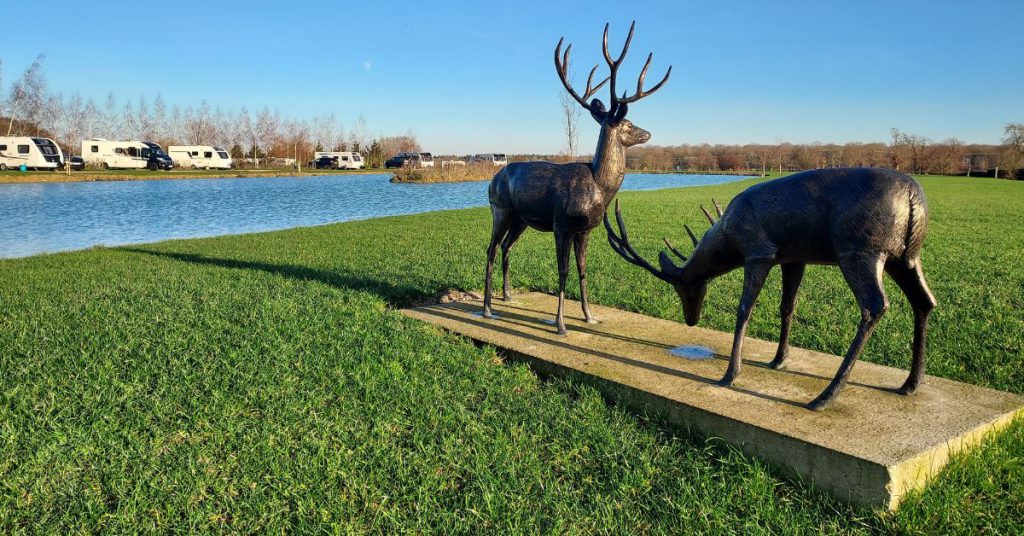
Date of Visit: December 2025
Overall View
This is an independent adults only, dog friendly site which is also part of both the Tranquil Parks organisation and the Premier Parks group.
www.premierparks.outandaboutlive.co.uk/
The site has 40+ fully serviced pitches and also has a small number of log cabins at the rear of the site. These do accept children. The site is rural in location and peaceful. Watch our site arrival video here.
Facilities
There is a comprehensive facilities block at the front of the site – it is of the highest standard, with individual shower/toilet rooms including a fully accessible room. Underfloor heating and beautiful stone and marble fixtures make for a lovely experience. Hairdryers with access to mirrors are placed outside each room.
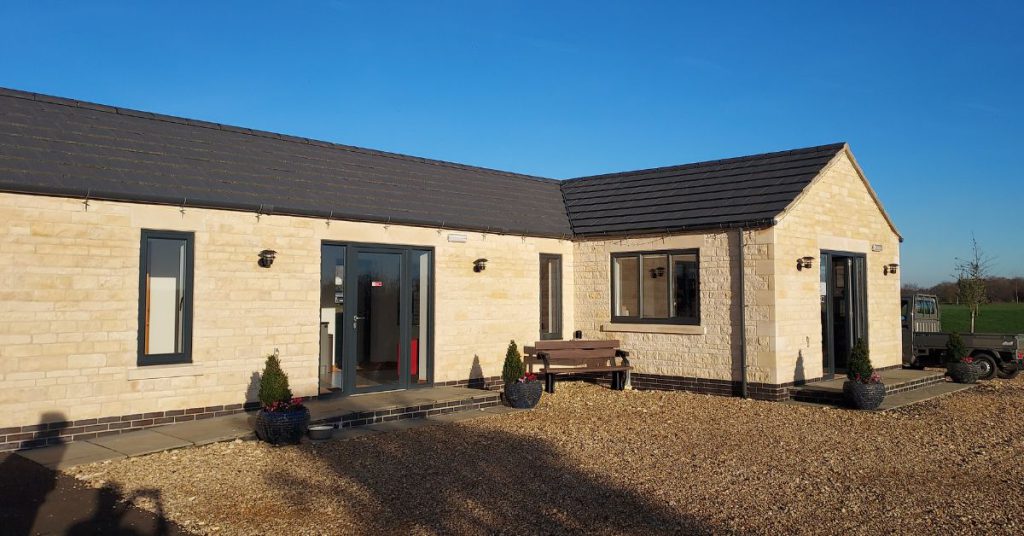
The middle of the block houses the washing machine and dryer – good quality domestic style machines charged at only £1/hour at the time of visiting. There is also a washing up sink unit for those people who prefer to do their dishwashing outside of their van. This area serves as the information area and there are comprehensive maps, leaflets and very much focussed on dog friendly locations. A list of vets, GP’s, Hospitals etc is also available here.
The site has a number of waste/recycling points spread across the site and there are a number of CDP points, some of which are alongside the recycling points. A drive over motorhome service point was being constructed at the time of our visit and will be open in the New Year – this will be opposite the facilities block.
There is a secure dog walk with seats in to one side of the entrance to the site. Dog bins are available throughout the site as well. A dog shower point is available to the rear of the facilities block.
At one side of the facility block is the Reception and a small shop stocking basics. This includes ample supplies for the fishing lakes – there are a number; the ones by the tourer area are available free to residents. At the time of our visit, it was contactless payments. They do carry a small cash float to pay for the washing machines.
Security is good with a barrier system.
There are tennis courts situated to the rear of the log cabins – further details from Reception.
Both TV and radio reception were excellent.
Mobile wise, the coverage maps of all four of the UK mobile networks suggested good 4G coverage inside and out, however our experience was a bit different. Smarty (Three) struggled during the day and was unusable at night with the blinds closed. EE and Vodafone were a little better but streaming was hit and miss. This may have been due to the location of our pitch which was more sheltered than some. There were no issue with streaming using the roof mounted puck through Lyca (EE).
Review of Site Pitch
Each of the pitches are fully serviced with water, grey waste disposal and EHU. They are level and of generous proportions. It is possible to site your awning, caravan and car alongside each other with room to spare. They are laid to gravel and drain well. There is a tarmac road around the front of each pitch.
All pitches look onto one of the fishing lakes – this is to facilitate the fishing whilst not being away from the van.
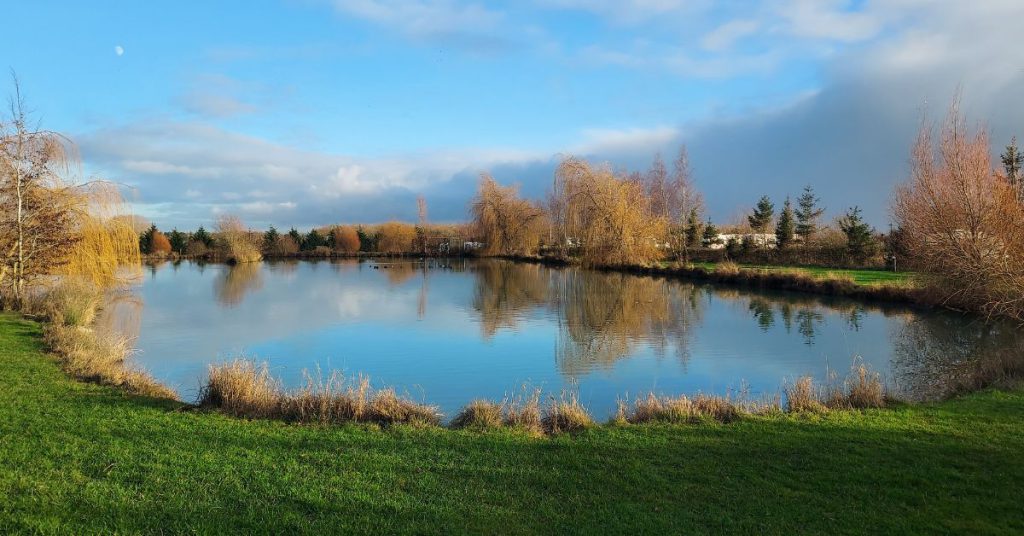
Around and about
The nearest bus stop is in the village of Stretton, which is at the exit of the A1 on your way to the site. It is about a 20 minute walk along roads with no pavements from the site. It is operated by Rutland County Council bus service – RZ1. It offers two buses a day, one in a morning and one in late afternoon. www.rutland.gov.uk/rutland-buses
They also offer a Call Connect Service whereby you call and reserve buses in advance. Please see website for further details.
Nearest shop is a Community Shop in Clipsham and also houses a cafe.
https://bythams.shop/shop-cafe
There are several fuel stations on the A1 – but they do tend to charge premium prices. There are supermarket fuel stations in both Oakham and Stamford – these being the two main towns in closest proximity to the site. There is an Essar garage at the top of Oakham high street which was offering very competitively priced fuel – watch for the queues!
There are a good number of places to visit within half an hour or so travelling. All offer a great range of independent shops and facilities, Oakham in particular. There are also free to download Heritage Trails around the towns – it’s good to do this before you leave as some of them are quite small writing on your phone. Commercial firms also offer a range of trails from the straightforward historical to the downright quirky and fun. Each website lists guided tours available as well as self-guided.
Stamford: https://discover-rutland.co.uk/stamford/
Oakham: https://discover-rutland.co.uk/oakham/
Rutland Water: https://anglianwaterparks.co.uk/rutland-water
[Home to all types of water sports and seasonal boat cruises].One of the closest visitor attractions to the site is the Yew Tree Walk. It used to be the entrance to the privately owned Clipsham Hall but is now a free to visit historical site. There is limited car parking at the site but it is all accessible, providing the ground is not too wet. There are picnic tables available but no toilet facilities. For further information and to read up on its fascinating history – please check https://yewtreeavenue.co.uk/
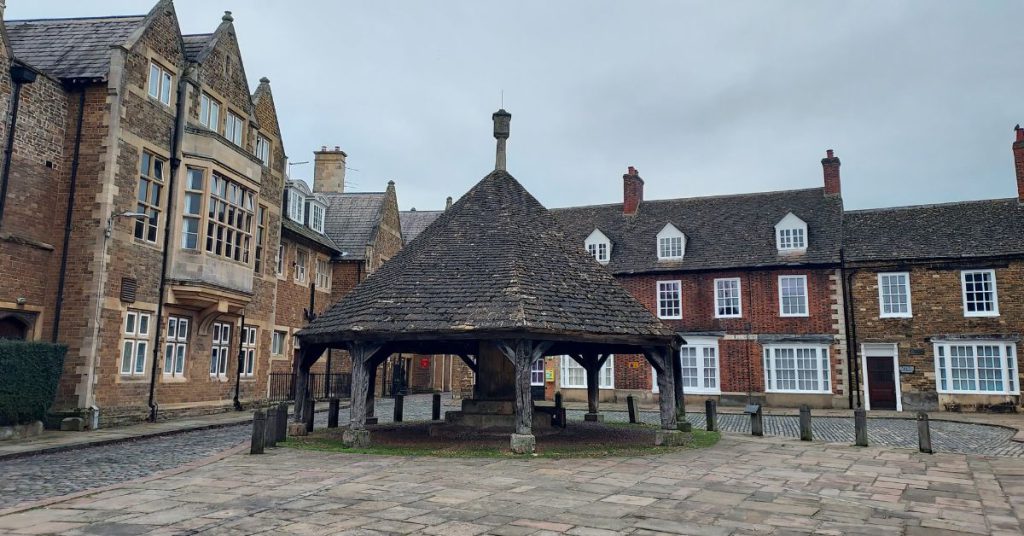
There are a couple of permissive footpaths direct from the site to Stretton, potentially cutting off some of the road walking. Wellies or strong walking shoes are recommended in the winter months. This also takes you through George Henry Wood which runs along the road before the turning to the site. It is clearly a favourite with dog walkers although there are limited roadside parking opportunities.
Grantham is a main town in Lincolnshire, about a 20 minute easy drive up the A1 from the site. It has all the facilities, including the usual out of town retail parks. It is also on the East Coast Mainline Railway. Grantham has many claims to fame over many centuries including Sir Isaac Newton was educated here as a schoolboy and in more recent times, the birthplace of Lady Margaret Thatcher. We happened upon a free heritage trail app, purely by chance. The app covers lots of places up and down the country but also included a very interesting one for Grantham. It is fully accessible and includes an audio commentary if you wish to use that.

We highly recommend you have a look at this app, we will certainly be making use of it in the future. They are on Facebook as well.
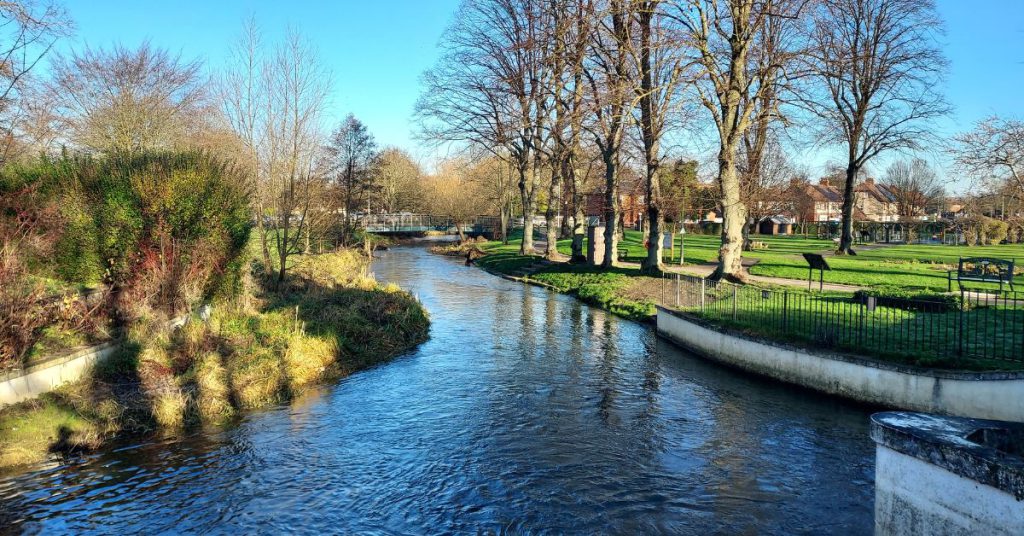
Summary
An excellent site with very high standards. Its location is part of the attraction but you really need a car to move about. If you have a fisher in your party, then they will find this site very enjoyable. However, please do not be put off by the focus on fishing as there is plenty of alternatives in the area. We visited over the Christmas and New Year period and would certainly return again.
Pimp your static home on a budget
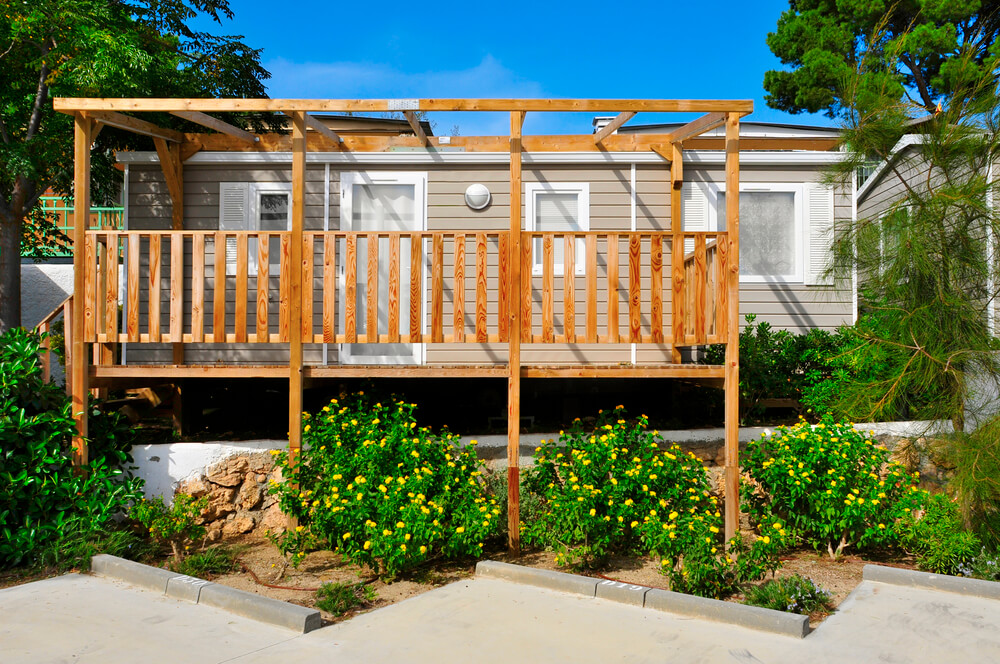
Is your static home looking a little tired and in need of a refresh? Then here are some ideas on how to spruce up your static home on a budget.
General principles
The static caravan that makes your home away from home is unlikely to be anything as large as the place in which you live. Therefore, you can forget about those major building works to create an extension or loft conversion and narrow your sights to more modest changes – by thinking small, you might be able to make the biggest and most eye-catching changes in creating a second home that looks brand new.
So, let’s take a closer look at some of the ways you might spruce up your static caravan.
See for yourself
Of course you want to put your own individual touches and character to any improvements and modifications to your caravan, but that doesn’t mean you are unable to take a leaf or two from other owners’ books.
Take a look around and see what looks good and what might be best avoided as far as your own project is concerned. If any lessons have already been learnt by your neighbours, there is no point in your repeating any of their costly mistakes.
Going it alone
Some modifications and improvements you might be able to take on yourself, but there may be other elements on which a more professional input might be helpful. In other words, don’t be afraid to ask for that help. It might be a question of knowing your own limits.
There are plenty of companies skilled in the maintenance and repair of static caravans. You can look online at directories to find someone near you.
Even for those jobs you may be taking on yourself, suppliers such as these may be useful sources for ideas, tips and suggestions.
First appearances
It is the exterior of your caravan of course which is the face presented for the world to see.
Across your holiday park you are likely to see identically built holiday homes of a similar appearance, largely down to the fact that the majority of them have an aluminium exterior.
It is relatively easy to reclad your static home in vinyl, however, to completely transform its general appearance – as well as increasing its insulation and weather-proofing.
Recladding might have served only to highlight the generally poor state of repair and dated look of your doors and windows. Although these might of course be replaced – to highlight the makeover – it is a job that you might want to leave to the professionals.
Remember, tackling the exterior may prove more difficult and needs to be handled with particular care, given the nature of a static caravan and its need to remain completely weather-proofed.
On the inside
It is inside your holiday home that some of the most exciting challenges might be found and the biggest changes made to reviving the look and feel of the place.
It is in the very nature of a static caravan and the way that it was designed and built that it comes with mainly fitted equipment, furniture and units.
Replacing these need not prove too expensive a project, however, and new kitchen cupboards and work surfaces are likely to create an immediate change in the interior environment.
Because of the relatively smaller interior of a static caravan, the flooring and passageways tend to take heavier than normal traffic, with the result that they more quickly appear tired and worn
New flooring – using lino, carpets or modern laminates – may transform the appearance and give fresh life underfoot. It is a job that is unlikely to be beyond the means of a reasonably competent DIY enthusiast.
Soft furnishings – from curtains, to cushions, furniture and upholstery – provide probably the fertile ground for pimping your holiday home. New textures, fabrics and colours may be used imaginatively and creatively to produce an entirely new look inside the caravan. In many instances, quite dramatic makeovers may be made with very little effort or expenditure, yet create a brand new, eye-catching and homely feel to the whole of the interior.
Here are some tips …
Clean and repair
As a first step, make sure to thoroughly clean and repair the interior of your caravan to sort out just what needs replacing, what can be kept, and what can be spruced up. This provides your starting point and the likely budget you need to make the changes you want to achieve.
Walls
Check for evidence of damp and mould and make sure to tackle that before tackling anything else. When you are satisfied they are clear, a lick of paint in fresh new colours might transform the appearance and make your static home feel airy and fresh.
Storage ideas for small static caravan spaces
There are still options! For example, a significant amount of space in a static caravan is typically wasted, being empty air at or around shoulder and head height etc.
You may be able to create additional storage space and free up floor space by putting in some additional wall cabinets, removing items from floor level and thereby making space for additional seating or decorative items etc.
It might also be a good idea to think about purchasing furniture that doubles up as storage areas – i.e. seats that lift and have hollow spaces underneath. There are some great new storage solutions for ‘vans around that may help you maximise your space.
Our blogs cover this in more detail:
Clever static caravan storage ideas
Floors
Whatever the layout of the interior of your static caravan, one of the first impressions is likely to be given by the state of the floor. A static caravan is likely to have far less floor area than your own home, so the area that needs to be covered is unlikely to be huge, so your budget might even extend to completely renewing your floor coverings
Where areas have become scuffed or worn, an inexpensive way of sprucing them up is to lay second-hand carpet tiles in the living areas or self-adhesive vinyl tiles in the kitchen and bathroom.
The really good news here is that things such as lino floor tiles (and similar) are now really very affordable and they’re typically far better quality than those available just a few years ago. It’s perhaps worth spending a little more than the absolute minimum here in order to get more durable flooring if you can afford to do so but even if you do, the costs are not likely to be prohibitive.
Fashions
If you are interested in producing a look that reflects current trends, some online research is likely to pay dividends – so look through the caravan club websites, Pinterest and Instagram for some illustrated ideas.
Careful research is also likely to pay off if you want to retrofit your static caravan to achieve a more classic look – charity shops and car boot sales offer ideal place to rummage in search of old pictures, their frames and classic, retro fabrics.
Don’t forget that it is sometimes possible to obtain nearly new items at a very low cost by purchasing them at public auctions etc.
You may also be amazed at how things can be improved by simply a light sanding down and a coat of new paint or varnish.
Keep an eye open also for liquidations and stock clearances – they are often good sources for new furnishings at knockdown prices.
New cushions and upholstery
You don’t need to rush to a designer boutique in order to secure some very good quality and highly attractive slip-on upholstery. The same is true for cushions, both in terms of upholstery and their internals.
Changing your colour scheme and replacing those tired furnishings can make an immediate and major positive impact on your surroundings.
A fresh, new look may be created by making your own curtains and scattering around a few handmade cushions to give the interior more comfort and interest. Yes, curtain fabric can be breathtakingly expensive at times but you may wish to check on the internet for off-cuts. Remember that today you may be able to bring fabric in from overseas for a fraction of the cost it may be available for in UK retail outlets – and that includes taking into account the shipping costs!
You can make your own cushions by buying inexpensive foam and fillings from a local trader and sewing together fabric remnants and material to make the coverings.
Decorative items
Tastes and fashions in decorative items change over time. True, most of us probably can’t afford to follow fashion to the extent that we change all our decorative possessions every other season but even so, it might be time for a new look.
Whatever your tastes are, modest decorative items are usually available for relatively small amounts of money from retailers and perhaps even less from boot sales etc. They can make a huge difference to how your room looks. Don’t forget, you may be able to sell the old ones to contribute towards the cost of replacement.
Lighting
Modern LED systems are not only highly energy-efficient but today are also often set in mountings in stunningly attractive styles.
Replacing those old lights and suspensions and replacing them with more up-to-date versions will make an immediate positive impact on your décor.
In passing, some of those old annoying features of LED lighting, such as waiting for several minutes after switching on for them to “warm up” and deliver light, are now the stuff of history. The modern ones are superb and it’s worth checking them out.
Bathrooms
It’s possible for shower rooms and bathrooms to also start to suddenly look very dated.
In reality, completely ripping out your existing shower and replacing it with state-of-the-art systems is likely to be expensive.
Give these areas a thorough clean – clean the grout and remove any mould. Replace the showerhead (you can buy more eco-friendly shower heads for around £20).
Then by simply adding in a few extras such as towel racks, dispensers and stylish WC seats, you can transform the look and feel of this area for relatively small sums.
Pimping your static home on a budget
The realisation that the internals of your static home are looking rather “yesterday” can be painful. However, as this article has hopefully shown, with a little effort, some ingenuity and not a lot of money, you may be able to do something about that – and relatively quickly.
Finally, although the changes you have made might seem relatively small and generally inexpensive when taken one at a time, the overall expenditure and effect may be to significantly increase the value of your static caravan. So, when the pimping is done, don’t forget contact us here at Cover4Caravans to consider a re-valuation of the sum insured amount for your static home if required.

